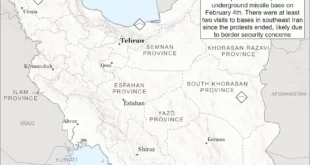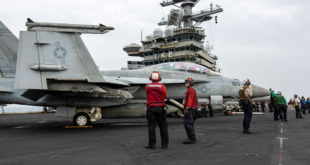 TEHRAN (Fars News Agency)- Iran’s ambassador to Baghdad, Hassan Kazemi Qomi, said last Sunday that Iran intended to offer the Iraqi government equipment, training and advisers to help the country secure itself.
TEHRAN (Fars News Agency)- Iran’s ambassador to Baghdad, Hassan Kazemi Qomi, said last Sunday that Iran intended to offer the Iraqi government equipment, training and advisers to help the country secure itself.
In addition, they offered to assume responsibility for a good deal of reconstruction and open a branch of the Iranian national bank in the middle of Baghdad.
This offer of reconstruction is enticing to Iraq for multiple reasons. First off, Iraq is in shambles – a rubble-strewn echo of its former self. Outside of the “Green Zone,” the US military has established in Baghdad, few places in Iraq have not been utterly destroyed. Even within Baghdad itself, shelled buildings crumble as they are caught in the blast radius of explosives or hit with crossfire.
Iran is in a unique position to help repair this destruction, as they had to deal with it firsthand when Saddam Hussein invaded Iran in the 1980-88 Iran-Iraq war.
So, from an Iraqi standpoint, this is a good offer. After nearly four years of devastating war, a neighbor and former enemy has come along with an offer to help rebuild and secure the country – something the United States promised to do, but has failed miserably at.
If Iraq does take up the offer, it puts the United States in an awkward position.
Back in the 1950s, Mohammed Mossadegh rose to power in Iran on a wave of popular support and a plan to privatize and redistribute profits from the British and US-dominated Anglo-Iranian Oil Company. This worried the United States and Britain.
After Mossadegh was democratically elected, the CIA, working with the British Secret Intelligence Service and headed by Kermit Roosevelt, overthrew Iran’s government in 1953. The Shah of Iran was installed and became brutal and corrupt, but was US-friendly.
Anti-US sentiment exploded in Iran and came to a head in 1979 during the subsequent overthrow of the Shah by the Islamic Revolution of Ayatollah Khomeini.
Now, the United States finds itself in a troublesome situation with what to do in Iraq. After invading the country and toppling Saddam Hussein’s regime, the United States established a new, pro-US government, making a big deal about democracy in the Middle East.
Thanks to the US sanctimonious preaching about the power and the good of democracy, the United States cannot come out and condemn Iraq for working in its best interests and accepting help from the Iranians.
Then again, an Iraq-Iran alliance could very easily jeopardize the United States’ already-tenuous position in the Middle East and give the Iranians a strong foothold in the region not only geographically, but economically. After all, the Iraqi oil fields would be theirs to profit from.
Furthermore, if Washington comes out against this cooperation, it could serve to bring to light the United States’ hypocrisy and foster more anti-US sentiment.
 Eurasia Press & News
Eurasia Press & News



